|
Well, having seen all the details about how I perform measures with my equipment, let's see how do I run a complete audio test of a walkman. For example, let's test the AIWA HS-G08, one of my favorite walkmans, that I already reviewed here.
Adjusting the maximum output without clipping
The first step is to check the maximum power and if it shows clipping. Before doing that, I carefully clean the rollers and the head using isoprophilic alcohol.
So I set the volume to max and play a 1kHz signal recorded at 0dB on an UX Pro tape, and here is the result, where you can see some clipping:
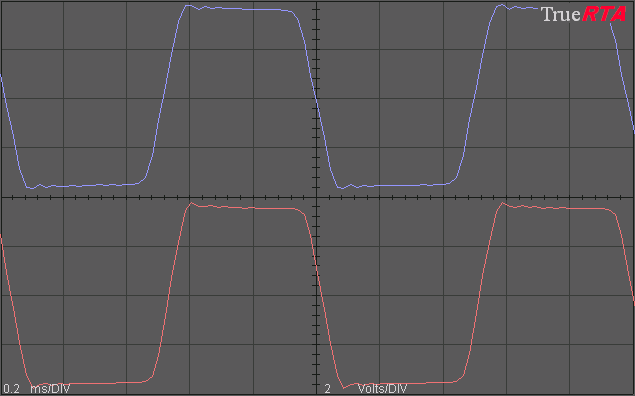
When playing a 1kHz signal at maximum volume, the result shows strong clipping.
Left channel is blue, red is right.
So the 2nd step is to search for the highest volume that doesn't suffer from clipping. In this case is 7:
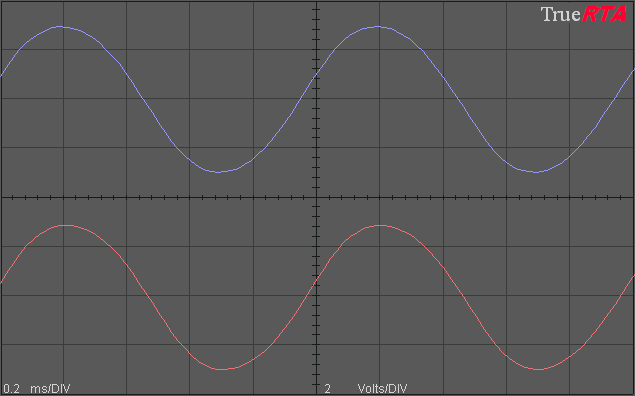
At volume 7, the result is a perfect signal, but it doesn't arrive to the necessary output level.
So then I connect the CMoy amp to the headphone output and adjust it so it arrives at 2800mV, the proper level for measuring:
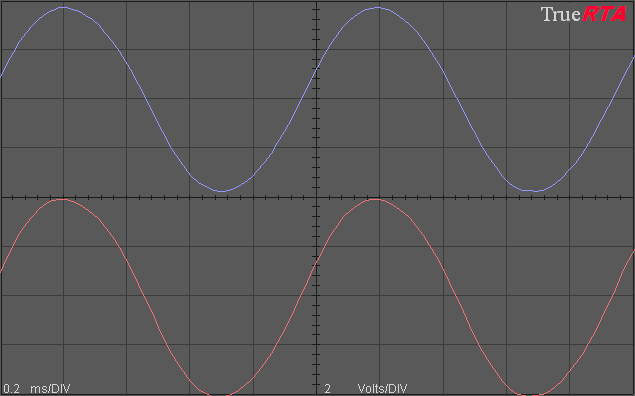
Now all is ready to measuring.
Whenever possible, I adjust the azimuth so both channels are in phase, as seen here.
Frecuency response curve
Now I use TrueRTA to measure the frequency response curve (FRC). To measure it I play pink noise recorded in an excellent SONY UX Pro tape. The final graph is achieved by averaging 100 measures. The ideal FRC has to be completely plain. Let's see our AIWA G08:
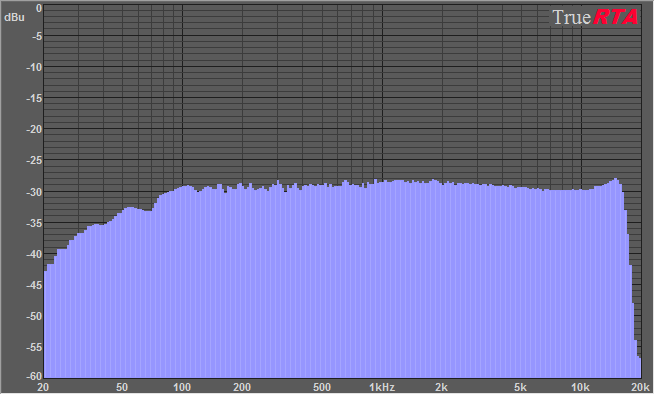
where we can see that it's not bad, but suffers from a lack of bass under 100Hz and there's a small mountain at about 15kHz.
Frequency response curve with EQ
As some players have some kind of sound effects, like an equalizer, megabass or DSL, it's interesting to see how they modify the FRC, to see the real effect. In this case, the G08 has a 5-band EQ. Let's see how every slider affects the FRC:
FRC linearized with EQ
With some players that have multi-band EQ, it's possible to linearize the FRC using the EQ. That's something very interesting (but only has sense if the FRC is not perfect with all sliders at zero) because the EQ setting achieved should be considered the real zero configuration. Let's see our AIWA G08:
Where you can see that the FRC is not perfect, but it's better than the original.
FRC with and without Dolby
If the player has Dolby system (almost all walkmans in my collection have it), it's interesting to see how it affects the FRC. Usually, many players cut the high frequencies, making the music sound dull. But this is usually 80% a problem of the recording, and 20% the player. I experienced it with my modded D6C by Dr Walkman. Before I had it, my recordings sounded dull and the Dolby filter didn't make all the necessary changes in the recording so it can be played properly. But now I can say the quality of the recording affects so much the result.
Another important thing is that a tape recorded with Dolby has to be played with Dolby. And the opposite is true too. So let's see how is the FRC when playing an UX Pro recorded with and without Dolby B (on my D6C):
We can see here that the FRC is almost unchanged when playing a Dolby-B recorded tape. That's excellent!
Background noise
Another important measure is the level of background noise, already explained here. Usually it's measured by analyzing the volume level present at 15kHz, that normally represents the 'hiss'.
The best decks normally achieves values of:
| - |
Without Dolby: -59dB |
| - |
With Dolby B: -66dB |
| - |
With Dolby C: -74dB |
So let's see how does it performs our AIWA G08:
Wow & Flutter
The last parameter to measure is the wow&flutter, already explained here. We can see here that this G08 has a RMS DIN value of 0.18, which is not bad for a walkman (considering that, i.e. a SONY B39 has about 0.29):
| Wow & Flutter |
0,186% (RMS)
0,35% (Peak) |
I'll show a screen capture of wfgui, a russian freeware:
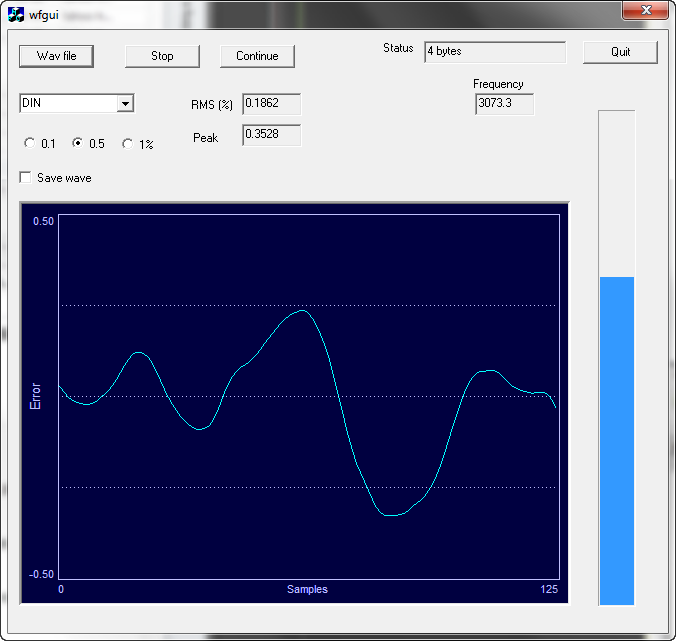
Final rating
So finally I listen to my reference recording (already explained here) and combine all data into a single graph, to let us quickly see all the measurements about it:
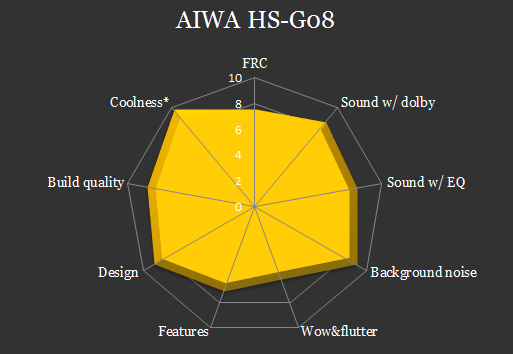
AIWA HS-G08 final rating.
|
![]()
![]()
![]()
